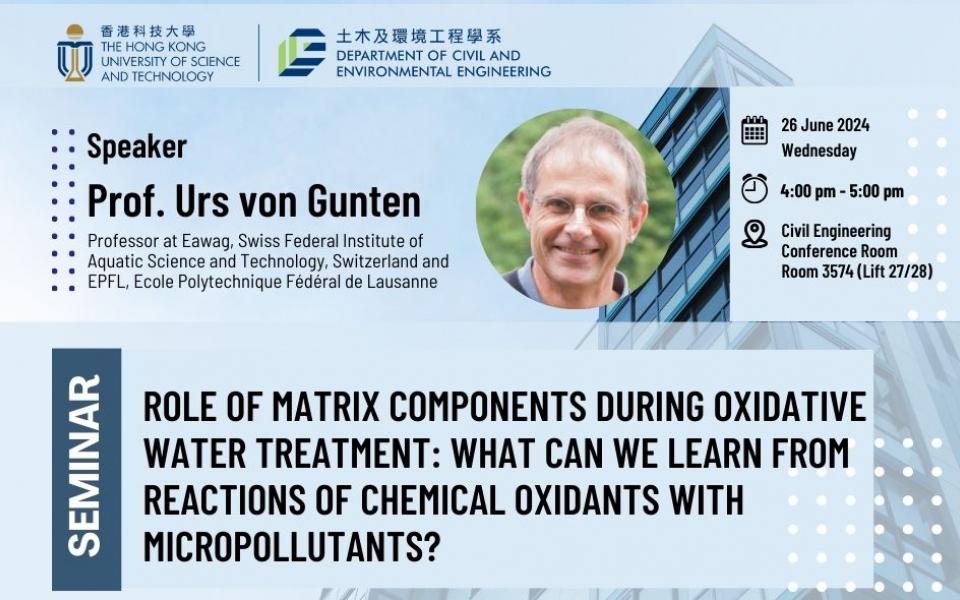Civil Engineering Departmental Seminar - Role of matrix components during oxidative water treatment: What can we learn from reactions of chemical oxidants with micropollutants?
Supporting the below United Nations Sustainable Development Goals:支持以下聯合國可持續發展目標:支持以下联合国可持续发展目标:
Role of matrix components during oxidative water treatment: What can we learn from reactions of chemical oxidants with micropollutants?
Oxidative water treatment has been applied since more than a century for disinfection and abatement of micropollutants in water and wastewater treatment. In the last decades, a lot of kinetic and mechanistic information was obtained for transformation reactions of micropollutants and naturally abundant bromide and iodide. This information is key to assess the roles of matrix components during oxidative treatment. To this end, the dissolved organic matter (DOM) plays a crucial role because it consumes the largest fraction (typically > 90%) of chemical oxidants applied in water treatment and leads to ensuing products. The complexity of DOM does not warrant simple mechanistic studies similar to individual compounds and a suite of parameters needs to be determined such as the oxidizable site concentration, electron donating capacity, and precursor concentrations for oxidation byproduct formation. These parameters can be assessed by novel methods including oxidative titrations, dye-based measurements of electron abstraction from DOM, tagging of reactive sites and product identification during oxidative treatment (including stable isotope composition). Such information can also lead to constitution of synthetic matrices to mimic realistic treatment conditions. Furthermore, the reactivity of DOM with secondary oxidants formed during oxidative water treatment needs to be determined for an enhanced understanding of product formation.
This talk will start with a general assessment of reactivity of chemical oxidants with inorganic and organic compounds for micropollutant control. Thereafter, it will provide new insights for the understanding and quantification of reactive sites of DOM and the ensuing consequences for oxidant stability and formation of oxidation byproducts and their fate in post-treatment processes.
Urs von Gunten has a joint appointment between Eawag, the Swiss Federal Institute of Aquatic Science and Ecole Polytechnique Fédérale de Lausanne (EPFL) where he is a full professor. He is an internationally recognized expert on oxidation processes in water and wastewater treatment, including disinfection, micropollutant abatement, and formation of transformation products and disinfection byproducts from reactions with matrix components. In the last two decades he was strongly involved in the application of ozone for enhanced municipal wastewater treatment for micropollutant abatement, from laboratory experiments to full-scale implementation. He collaborates regularly with Swiss practitioners from the water and wastewater sector, e.g., he was the head of the trans-disciplinary projects “Water Supply for the 21st Century (2004-2008)” and “Regional Water Supply Basel-Country (2013-2016)”.
